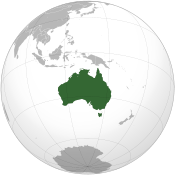New environmental housing regulations for Western Australia
Friday, May 25, 2007

Image: Nachoman-au.
The Western Australian Government has announced that after September 1, 2007 all construction approvals for new homes must comply with new Environmental regulations. The new regulations known as Five Star Plus will be implemented in two stages.
Michelle Roberts, minister for Housing and Works, announced that the first stage would increase the cost of a new house by approximately AU$1000 with a second stage to commence next year, at a further cost to homeowners of $1000. “People building new houses should remember these costs would be offset by ongoing savings in water and energy bills of up to $750 per year,” she said.
The first stage aims to reduce greenhouse gas omissions by 129,000 tonnes over five years. "This is the equivalent of taking 30,000 cars off the road, and (has) the same benefit achieved by planting 15 trees per household," said Roberts. The first stage will require house to have a range of measures including Solar, or five star rated gas or heat pump hot waters systems.
"It is estimated that if all homes in Western Australia upgraded to the Five Star Plus standards, there would be water savings of 30 gigalitres over five years," said Roberts. The standards will require water efficient taps, showerheads and dual flush toilets. As well, all new swimming pools will be required to have a pool blanket to reduce evaporation.
The second stage of Five Star Plus will require the design to include alternative water supplies such as rain water tanks and grey water diversion systems.
Concerns from staff within government have been raised about the influence of the Housing Industry Association (HIA) on the government's environmental initiatives. According to news source, The Age, a senior government official suggested that a more rigorous "building sustainability index" had been developed, but was dropped after intensive lobbying by Western Australia's HIA. "It was canned at the last moment after huge lobbying," said the anonymous government employee. "The HIA was very obstructionist."
Sources
edit- Royce Millar and Liz Minchin. "Housing lobby in 5-star mystery" — The Age, May 26, 2007
- Press Release: "New building standards to help save the environment and deliver savings" — Government of Western Australia, May 25, 2007
- Peta Rule. "New houses must be green, says Government" — The West Australian, May 25, 2007

